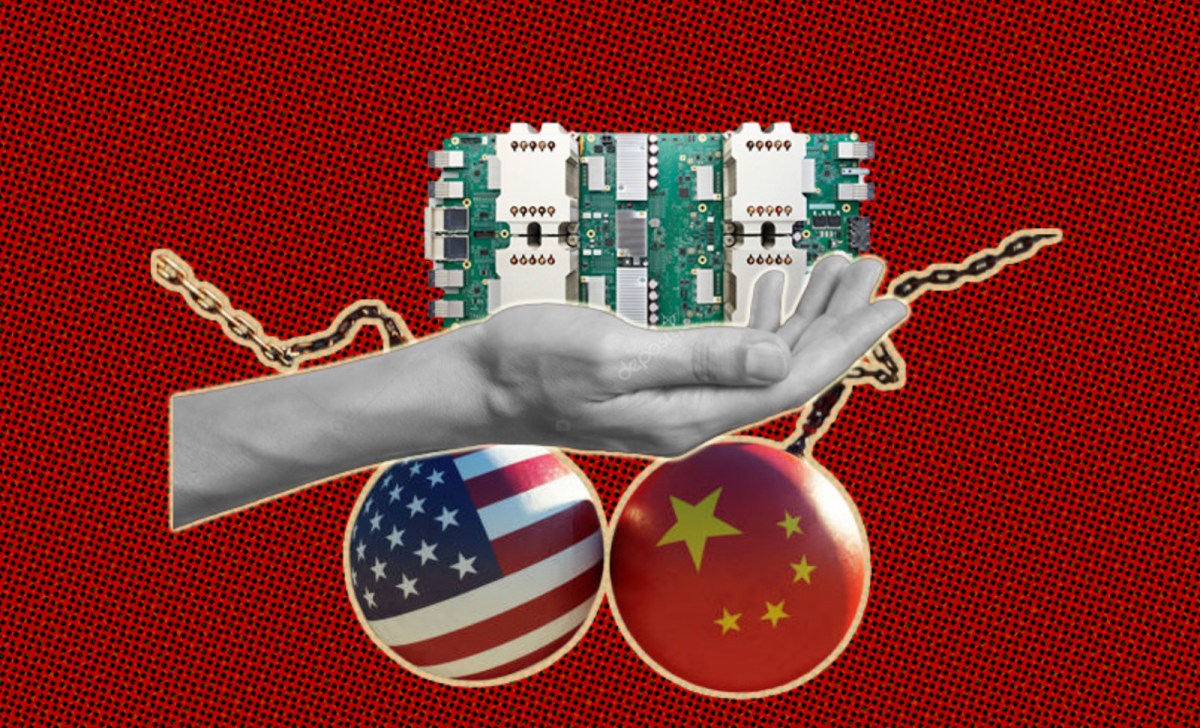Global Courant 2023-05-29 20:20:21
Top US and Chinese officials have resumed trade talks, but both sides continue to threaten each other with sanctions on the semiconductor industry.
Chinese Commerce Minister Wang Wentao and US Commerce Secretary Gina Raimondo had “candid and substantive discussions” at a meeting in Washington on May 25, according to news reports citing official statements.
But on May 27, Raimondo announced the completion of negotiations on a groundbreaking Indo-Pacific Economic Framework for Prosperity (IPEF) Supply Chain Agreement that irritated Chinese officials.
Under the agreement, 14 IPEF member states, including the US, Australia, India and Japan, will create a new IPEF Supply Chain Crisis Response Network that can serve as an emergency communication channel when one or more partners face an acute supply chain crisis.
They will also establish an IPEF Supply Chain Council to oversee the development of sector-specific action plans designed to build resilience and competitiveness in critical commercial areas.
“Regional cooperation frameworks, by whatever name, must remain open and inclusive, rather than discriminatory or exclusive,” said Mao Ning, a Chinese government spokesman. said on Monday about the IPEF.
“Disrupting the function of the market, politicizing normal trading activities, and erecting barriers to hinder industry collaboration, such as semiconductor collaboration, is the greatest risk to supply chain stability.”
Mao said Japan and the US should not undermine other countries to establish hegemony or to protect what she characterized as “selfish” interests.
Chinese state media also criticized Raimondo on Monday for continuing an agreement expressly designed to suppress and restrain China. According to state reports, Beijing will fight back if the US imposes more technological restrictions on China.
A virtual representation of the launch of the Indo-Pacific Economic Framework in Tokyo, Japan, on May 22, 2022. Image: Handout
“Fourteen IPEF countries led by the US have reached consensus to improve the resilience and security of their supply chains of semiconductors and key minerals,” Xin Bin, a commentator, wrote in a statement. article published by the Communist Party-led Global Times on Monday: “But this will only damage the stability of the world’s supply chain.”
“The goal of the Biden administration’s foreign economic policy is not to safeguard the interests of US allies, but to use the allies to strengthen US own supply chains and contain China,” he said. the Global Times report.
Investment Restrictions
China had been unwilling to talk to the US for months after bilateral tensions ran high over a Chinese spy balloon seen in North American skies in late January.
The situation was set to worsen further in April, after reports indicated that US President Joe Biden would soon sign an executive order banning US companies and private equity and venture capital funds from investing in China’s high-tech sectors.
The US has not yet revealed the investment restrictions, but successfully convinced other G7 countries to join hands at the G7 summit in Hiroshima, Japan, from May 19 to 21, instead of disengaging from China.
Tit for tat, Beijing announced on May 21 that China’s top national infrastructure managers would not be allowed to buy products from Micron Technology because the US chipmaker allegedly poses network security risks.
On May 23, the Japanese government officially said it will add 23 items, including advanced chip-making equipment, to its list of regulated exports to China. The new measures will take effect on July 23.
China’s Commerce Ministry said on Monday that Wang had expressed diplomatic displeasure to Japan’s Economy, Trade and Industry Minister Yasutoshi Nishimura at a recent meeting on the matter.
“Japan ignored China’s strong opposition and insisted on introducing control measures on semiconductor exports, which seriously violated international economic and trade rules and seriously damaged the base of industrial development,” Wang told Nishimura at an APEC ministerial meeting. meeting on 25 and 26 May. “China is very dissatisfied with this and urges Japan to correct its wrong practices.”
“We hope that Japan will correct its perception of China and really promote the stable development of economic and trade relations between the two countries with a constructive attitude,” he said.
Wang also said China firmly opposes the G7 Leaders’ Declaration on Economic Resilience and Economic Security, which called for a common approach to shrink and diversify the West’s economic ties with both Beijing and Moscow.
US Secretary of Commerce Gina Raimondo. Photo: Global Courant Files
Meanwhile, at a meeting with Wang in Washington on May 25, Raimondo expressed concern over the recent spate of actions Beijing has taken against US companies operating in mainland China.
She said in a media briefing on May 27 that the U.S. government “is firmly opposed” to China’s ban on Micron and “will not tolerate” the restrictions, which it characterized as “plain and simple economic coercion.”
China’s countermeasures
Similarly, at the meeting, Beijing expressed concern over US trade policies, semiconductor sanctions, export bans and outward investment screening against China, a Shanxi-based writer said in a article published by Paitou Observe, a social media account operated by the state-owned Defense Times, on May 28.
“The US wants to resume dialogue with China, but continues to step up efforts to contain China,” the columnist wrote. “Maybe the US is feeling guilty right now. It tries to use the term ‘de-risking’ to describe its decoupling with China.”
He wrote that the ban on Micron’s products is likely just the first round of countermeasures imposed in retaliation against US tech restrictions. He says China will only cooperate with the US if it can show more sincerity.
Before meeting Raimondo, Wang chaired a meeting with major US companies, including Johnson & Johnson, 3M, Dow, Merck and Honeywell, on May 22 in Shanghai. The American Chamber of Commerce in Shanghai also attended the meeting.
The Shanxi-based writer said in a article on May 25 that Wang, by holding a meeting with top US companies, wanted to emphasize that China is still committed to opening up the economy at a high level and continues to attach great importance to attracting foreign investment.
The same writer also noted that some US officials have described the Micron ban as “retaliatory”, leading some US companies to worry that they will similarly be attacked by China.
Semiconductor giant Micron threatens to lose market share in China. Image: Facebook
“In fact, China has not banned all Micron products, but only those used in key information infrastructure such as government departments, state-owned enterprises and financial institutions,” he wrote. “China’s ban on Micron is a preliminary warning: only naughty children will be punished.”
He wrote that China is confident that Micron’s current market share in the country will be absorbed by Chinese chip makers such as Yangtze Memory Technologies Co and ChangXin Memory Technologies.
Matthew Miller, a spokesman for the US State Department, said on May 22 that Beijing’s action against Micron is inconsistent with China’s claim “that the company is open to business and committed to a transparent regulatory framework.”
Read: With Micron ban, China says no to ‘risk reduction’
Follow Jeff Pao on Twitter at @jeffpao3
Similar:
Loading…








